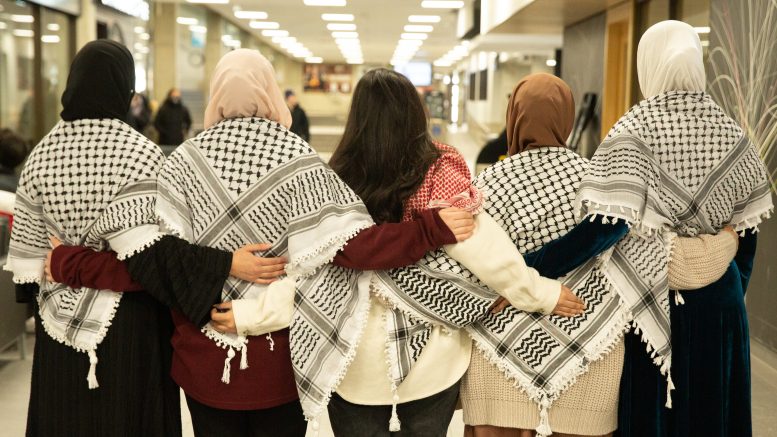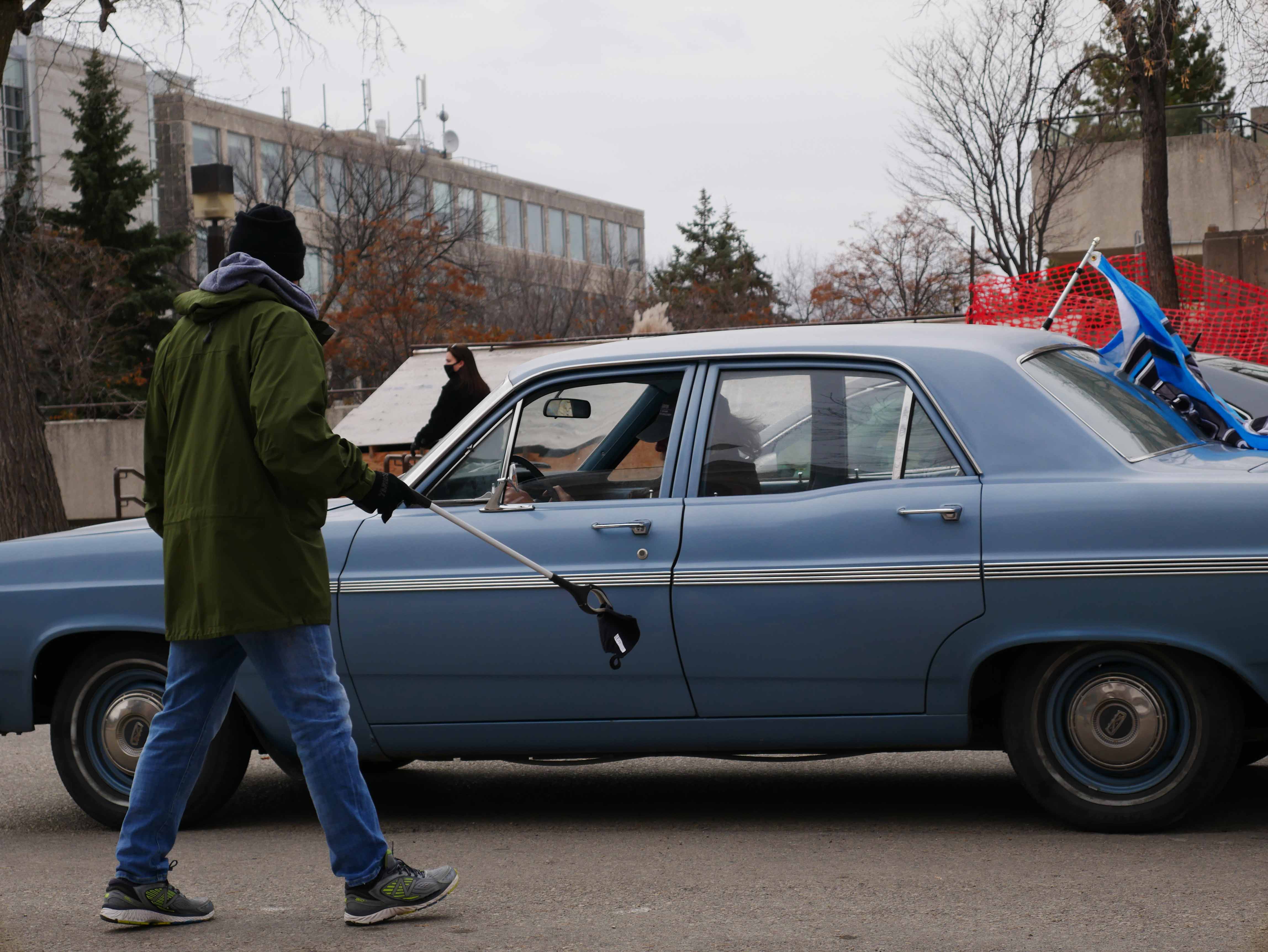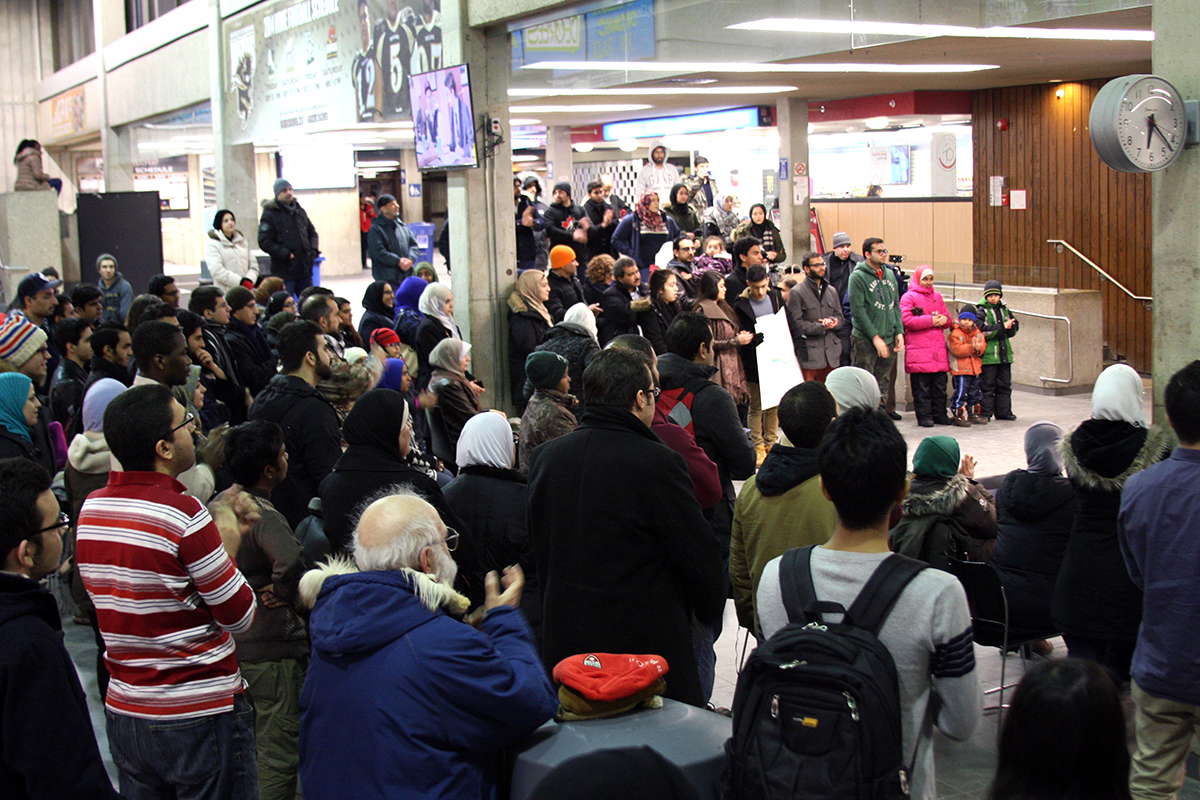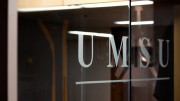Last week saw Palestinian Awareness Week come to campus, courtesy of the university’s chapter of Students for Justice in Palestine (SJP).
Zahra Rizvi, president of SJP, said that the group exists to discuss “the underlying issues that Palestinian students on campus face” and to raise awareness about the suffering Palestinians experience due to displacement, both historic and ongoing.
As many as 750,000 Palestinians fled or were forcibly displaced as a result of the 1948 Arab-Israeli War that followed the establishment of the state of Israel.
Since then, despite calls from the United Nations (UN) to implement a two-state solution that would grant sovereignty to both Israel and Palestine and negotiate a right of return for Palestinians who were displaced, Israel has continued to build settlements on occupied Palestinian territory that the UN and much of the international community consider to be illegal under international law, forcing more Palestinians from their homes.
To raise awareness, the week planned by SJP included events and initiatives such as a Tuesday night screening of the Netflix film Farha, a prize giveaway to students who could name a Palestinian that they are inspired by, a contest to submit a paragraph envisioning what a free Palestine would look like and Kuffiyeh Friday.
Regarding Kuffiyeh Friday, Rizvi said that “it’s basically where you wear this patterned Palestinian scarf.”
The kuffiyeh has become a symbol of Palestinian resistance to the occupation.
Rizvi added that SJP received “a tremendous response” to the paragraph submission contest.
She said that when she arrived on campus in 2017, Palestinian issues were rarely discussed.
“I took a peace and conflict course, and Palestinians were referred to as Arab-Israelis,” she said, “they weren’t even referred to as Palestinians.”
Some who oppose Palestinian statehood deny that Palestinians even have a distinct nationality — including a top minister in the current Israeli government who, on Monday, claimed there is “no such thing as a Palestinian nation.”
Rizvi was part of a coalition of 40 students that petitioned UMSU in 2021 to pass a motion that would commit UMSU to drafting a statement of solidarity with Palestinian students on campus and create a U of M chapter of SJP.
She said that getting the group started was difficult because “a lot of folks were not too keen on having an SJP on campus.”
Early talks between the coalition and UMSU failed to reach an agreement when the UMSU executive initially insisted that the word “Palestine” be removed from the statement, and that the union should instead issue a more general statement of solidarity with all students affected by events in the Middle East.
Rizvi said she doesn’t like to use the term “Middle East” because she thinks it generalizes too much about a variety of different cultures and peoples. She instead prefers to use the term SWANA, which stands for the Southwest Asian and North African region.
“Lumping everybody in that region under one umbrella just seemed very antithetical to our movement and what we were trying to talk about, and the conversations that we’re trying to have,” she said.
“We’re Students for Justice in Palestine,” she continued. “We are going to be talking about the issues that Palestinians are having to deal with and that is very specific and very nuanced.”
While petitioning the union, the coalition pointed out that UMSU had issued statements of solidarity with specific groups of students in the past, including one in solidarity with Indian students following the passage of a law in India excluding Muslim refugees from citizenship and a statement in solidarity with Black Lives Matter.
Following a four hour UMSU meeting featuring what the then-president of UMSU Brendan Scott described as “contentious” debate — which included the pre-SJP coalition presenting screenshots of death threats received by a Palestinian student who asked to remain anonymous, as well as Jewish students claiming that the statement delegitimized their experiences and the state of Israel and made them feel “attacked” — a statement of solidarity with Palestinian students was approved.
Rizvi said that although the attitude toward Palestinians on campus has gotten better, the school still has “a long way to go.”
On the film night last Tuesday, the group showed the Netflix film Farha, which tells the story of the 1948 displacement — referred to by Palestinians as the “Nakba,” which means “catastrophe” in Arabic — through the eyes of a 14-year-old girl forced to hide in the storage room of her home after her village is attacked by Israeli forces.
Rizvi described the discussion following the screening of the film as “really productive” and said that it allowed students of Palestinian descent to discuss their relationship to their homeland.
She referenced one scene in the film where a Palestinian woman keeps the key to her house on a chain around her neck.
“Palestinians to this day still have the keys to their ancestors’ houses in Palestine, even though those houses are completely demolished or there are other people living in those houses,” she said.
“It’s a reminder that one day we will return and one day we will honour the lives of the Palestinians that had to leave.”





